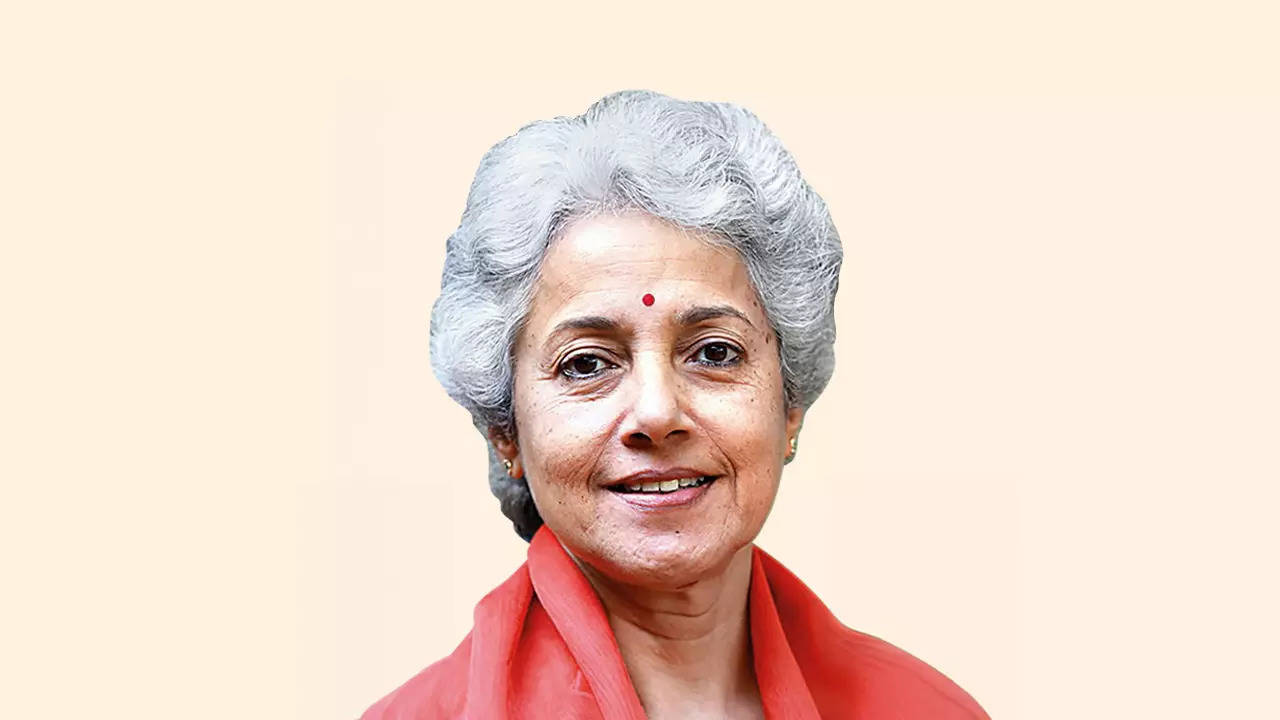Soumya Swaminathanwas chief scientist of the World Health Organisation when Covid-19 struck. Having played a key role in coordinating WHO’s initiatives during the pandemic, she talks to Pushpa Narayan about prevention strategies
There is so much concern about respiratory infections caused by several viruses in China. Are we heading for another pandemic?
While recent news about
respiratory infections
in China may seem alarming, it’s important to remember that respiratory illnesses are seasonal. Names of some viruses, like Human metapneumovirus or bacterial infections such as Mycoplasma pneumoniae, may sound new because patients are usually told they have a lower respiratory tract infection such as bronchitis or pneumonia. After the
Covid-19 pandemic
, increased testing and surveillance have led to the identification of more viruses. This doesn’t necessarily signify a surge in new viruses, but rather improved detection. We are likely to hear more names of viruses, old and new, in the future. We must learn to live deal with them in a scientific way.
Does that mean we are likely to have more viruses in the future?
The risk of emerging viruses remains significant. As human activities encroach on wildlife habitats, the risk of
zoonotic diseases
(diseases transmitted from animals to humans) increases. We see news about wild animals such as bison, tigers, and elephants entering human habitats every day. Illegal wildlife trade too facilitates the spread of viruses between different species. Wet markets like in Wuhan increase the risk of animal-to-human transmission. It usually stops with one case, but some mutations can increase transmission rate. Rapid travel can quickly spread a new virus worldwide.
What is the best way to prevent such infections or outbreaks?
There is no simple answer to this. One way is to ensure increased surveillance through multiple modes. While one group of scientists focuses on early identification, reporting, measures to minimise spread, targeted intervention in vulnerable areas and tracking evolution of the virus and its variants, another group of scientists works on early warning systems looking for the presence of viral RNA in wastewater before individual cases are detected. Sero surveillance of humans and animals (testing blood samples for antibodies against a specific pathogen or group of pathogens), vaccinations, and awareness measures can also prevent outbreaks. The
One Health approach
, which recognises the interconnectedness of human, animal, and environmental health, plays a vital role. By fostering collaboration between these sectors, we can more effectively address the root causes of zoonotic diseases, which originate in animals and spill over to humans.
Would you suggest universal vaccination for prevention of flu?
Studies have repeatedly shown vaccinations are vital in preventing severe disease and death. Flu vaccines may not offer cross-protection to other viruses, but they can certainly prevent many people, particularly vulnerable ones, from complications and deaths from influenza. It’s time for policymakers to update the policy on mass annual flu vaccinations.
Does India have a policy for epidemic prevention?
Niti Aayog recently came up with a report, ‘Future
Pandemic Preparedness
and Emergency Response: A Framework for Action,’ which outlines a strategy for India to prepare for and effectively respond to future public health emergencies, drawing heavily on the lessons learned from the Covid-19 pandemic. Key recommendations include strengthening surveillance and data management. The report recommends investing in research and development for medicines, vaccines, and diagnostics through global collaborations and national private-public partnerships. It also asks the govt to create a resilient healthcare system with adequate beds, human resources, and facilities, and increase community engagement through public awareness about infectious diseases, avoiding antibiotic abuse, and promoting healthy behaviours such as hygiene and vaccination.
Do we need new legislation too?
Yes, the Epidemic Diseases Act of 1897 was originally enacted to tackle the bubonic plague in Mumbai (formerly Bombay) in 1896. We must have contemporary legislation for public health emergency management. Medical emergencies and biological threats (man-made or natural) cannot be handled by the National Disaster Management Authority. It is not difficult for people with wrong intentions to manipulate organisms. We will need legislation and an organisation with adequate funding and statutory powers. This organisation must be able to provide risk communication and understanding behaviour change communication. People must know the health hazards of, say, ultra-processed food or environmental pollution.
Can we safely say the current surge may not cause a pandemic?
Organisations such as the WHO, which are closely monitoring outbreaks, have not put out any alerts. There is no warning or alert from China as well. So, as of now, we are safe to say there is no cause for concern. After the pandemic, most countries are reporting common viruses, mutations, and strains on open-source platforms, so we will know if there is trouble brewing. Meanwhile, it’s best not to panic, take sensible precautions and listen to the local public health authorities.
Health ministry reiterates country polio-free
I’m Manas Ranjan Sahoo: Founder of “Webtirety Software”. I’m a Full-time Software Professional and an aspiring entrepreneur, dedicated to growing this platform as large as possible. I love to Write Blogs on Software, Mobile applications, Web Technology, eCommerce, SEO, and about My experience with Life.




